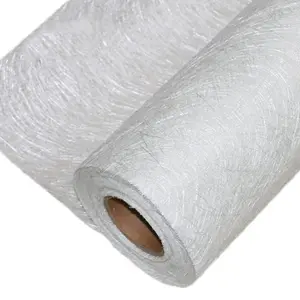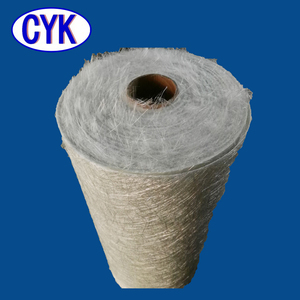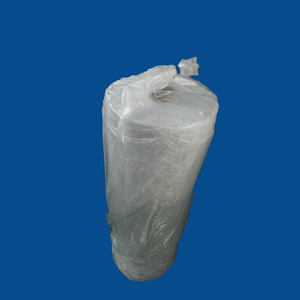(996 products available)





























































































































































































chopped strand mat tape are integral components in various industries, renowned for their strength, durability, and versatility. These materials are primarily composed of fine strands of glass woven together to form mats, which serve as reinforcement in composite materials. The inherent properties of chopped strand mat tape make them ideal for applications requiring high tensile strength and resistance to thermal and chemical environments. As industries continue to innovate, chopped strand mat tape are increasingly utilized in diverse sectors ranging from automotive to construction, providing solutions that meet the demands of modern engineering challenges.
The diversity of chopped strand mat tape is vast, catering to specific industrial needs. Common types include chopped strand mats, woven roving, and continuous filament mats. Chopped strand mats consist of randomly distributed glass fibers held together by a binder, offering excellent conformability and ease of handling. Woven roving mats are characterized by their interlaced structure, providing superior strength and stiffness, ideal for load-bearing applications. Continuous filament mats feature long and continuous fibers, giving them enhanced durability and impact resistance. Each type of chopped strand mat tape is designed to fulfill particular requirements, ensuring optimal performance for its intended application.
chopped strand mat tape serve multiple functions within industrial applications, primarily as reinforcement materials. They enhance the mechanical properties of composite structures, including their tensile strength, dimensional stability, and resistance to environmental factors such as moisture and heat. Key features include high thermal insulation, lightweight composition, and excellent corrosion resistance. These attributes make chopped strand mat tape indispensable in sectors like aerospace, automotive, and marine, where material performance is critical. The ability to withstand harsh conditions without degradation ensures longevity and reliability, contributing to the overall efficacy of the products they reinforce.
The composition of chopped strand mat tape involves a meticulous blend of materials to achieve desired properties. Primarily constructed from glass fibers, these mats may include additives such as resins and binders to enhance their structural integrity and adhesion capabilities. Glass fibers are derived from silica sand, which undergoes melting and extrusion to form thin strands. Resins, such as polyester or epoxy, are incorporated to facilitate bonding and improve the mechanical properties of the composite material. The choice of materials influences the mat's strength, flexibility, and resistance to environmental stressors, allowing manufacturers to tailor chopped strand mat tape to specific applications and performance requirements.
Effective use of chopped strand mat tape requires understanding their application and handling techniques. For optimal results, select the appropriate type of mat based on the structural requirements and environmental conditions of the project. Ensure that the mat is properly aligned and uniformly distributed to maximize its reinforcing capabilities. When integrating chopped strand mat tape into composite structures, apply the correct resin and curing process to achieve a strong bond and durable finish. In marine and automotive sectors, consider the impact of moisture and temperature fluctuations, utilizing mats with enhanced protective features. Proper storage and handling of chopped strand mat tape are crucial to maintaining their integrity and performance, ensuring they deliver the expected benefits throughout their lifespan.
When selecting chopped strand mat tape for specific applications, several factors must be considered to ensure optimal performance. The type of fiberglass mat plays a crucial role in its suitability for different environments and stress conditions. Chopped strand mats, woven roving, and continuous filament mats each offer unique advantages that align with particular industrial requirements. It's essential to evaluate the mechanical properties needed, such as tensile strength and flexibility, which vary depending on the mat's composition and structure. The selection process should also account for environmental factors, including exposure to moisture, chemicals, and temperature fluctuations, which can impact the longevity and effectiveness of chopped strand mat tape.
Another important consideration is the compatibility of chopped strand mat tape with the resin systems used in composite manufacturing. Different resin types, such as polyester, epoxy, or vinyl ester, interact differently with fiberglass mats, influencing the final properties of the composite material. Proper alignment and impregnation of the mat with the resin are critical to achieving the desired mechanical and thermal characteristics. Additionally, the choice of mat thickness and density can affect the reinforcement's overall strength and weight, making it essential to balance these factors according to the project's demands.
Environmental conditions significantly impact the performance of chopped strand mat tape. Exposure to moisture can lead to degradation over time, especially if the mat is not adequately protected or treated. Similarly, high temperatures and chemical exposure can alter the mechanical properties of the mat, affecting its strength and durability. It's crucial to select mats specifically designed to withstand these conditions to ensure long-term reliability and performance.
chopped strand mat tape offer numerous benefits in automotive applications, including enhanced strength and reduced weight, which contribute to fuel efficiency and performance. Their ability to resist corrosion and withstand high temperatures makes them ideal for use in engine compartments and exhaust systems. Additionally, fiberglass mats provide excellent vibration dampening, which improves ride comfort and reduces noise within the vehicle cabin.
Yes, chopped strand mat tape can be customized to meet specific industrial requirements. Manufacturers often tailor the size, thickness, and fiber orientation to achieve desired mechanical properties and performance outcomes. Customization may also involve adding surface treatments or coatings to improve adhesion and resistance to environmental factors. This flexibility allows industries to optimize the material for their unique applications, ensuring efficient and effective reinforcement.
Working with chopped strand mat tape presents challenges such as ensuring proper handling and storage to maintain their integrity. The fibers can be abrasive and may cause skin irritation, requiring appropriate protective measures during handling. Achieving uniform distribution and alignment within composites is crucial to avoid weak points and ensure consistent performance. Additionally, selecting the appropriate resin and curing process is vital for optimal bonding and durability.
chopped strand mat tape contribute to sustainability in construction by providing durable and long-lasting reinforcement that reduces the need for frequent repairs and replacements. Their lightweight nature aids in minimizing transportation energy and emissions. Furthermore, the potential for recycling and reusing fiberglass materials offers opportunities to decrease waste and promote environmentally responsible practices within the construction industry.